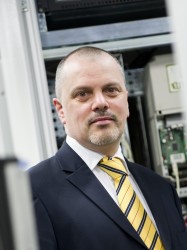BibTex format
@article{Hou:2022:10.1109/tpel.2021.3130112,
author = {Hou, X and Sun, K and Zhang, N and Teng, F and Zhang, X and Green, TC},
doi = {10.1109/tpel.2021.3130112},
journal = {IEEE Transactions on Power Electronics},
pages = {5970--5983},
title = {Priority-driven self-optimizing power control scheme for interlinking converters of hybrid AC/DC microgrid clusters in decentralized manner},
url = {http://dx.doi.org/10.1109/tpel.2021.3130112},
volume = {37},
year = {2022}
}

